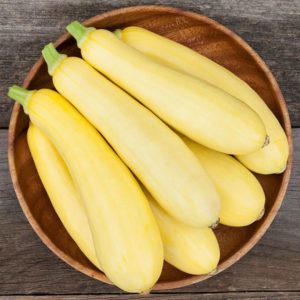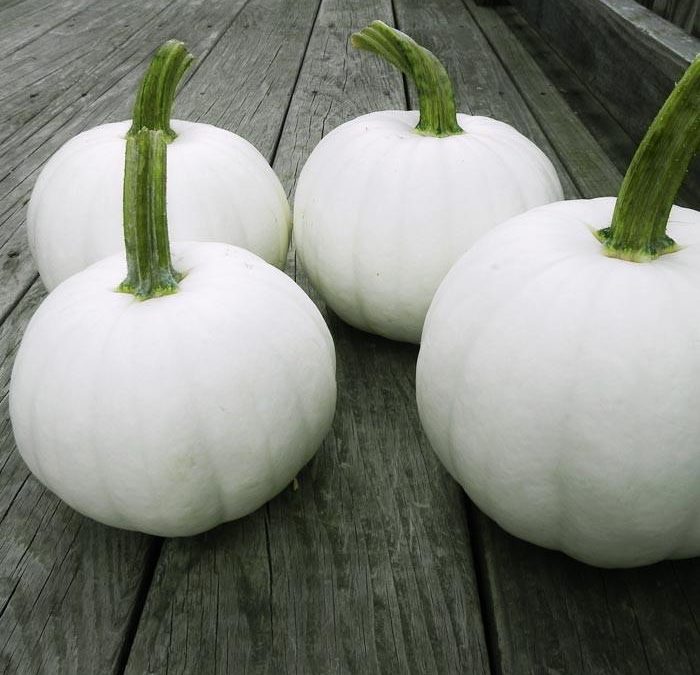From UNH News Service: Gardeners preparing to plant their fruits and vegetables have a number of new summer squash, melon and pumpkins options that were developed at the NH Agricultural Experiment Station at the University of New Hampshire by a researcher who represents the longest continuous squash and pumpkin breeding program in North America.
The most recent work of Brent Loy, emeritus professor of plant genetics, has resulted in the commercial release of several new cucurbit varieties that are well suited to state and regional growing conditions, have improved yields, and exhibit disease and pest resistance.
“Development of new varieties is a key underpinning for production of abundant and nutritious vegetables,” said Loy. “Improved variety performance in terms of yield, quality and ease of culture is paramount. Better appearance and improved nutrition and eating quality increase consumer acceptance and demand for locally produced vegetables, thereby providing more income to growers,’ and for regional seed companies marketing locally adapted varieties, helps maintain their profitability.”
Loy’s work has resulted in more than 70 new varieties of squash, pumpkins, gourds, and melons sold in seed catalogs throughout the world. Loy is responsible for 29 percent of UNH’s cumulative royalties earned since 1999.
Two new yellow straight neck summer squash varieties with reduced spines are available to home gardeners, Smooth Operator from High Mowing Organic Seeds and Blonde Beauty from Rupp Seeds. The reduced spines on foliage minimize fruit abrasion during harvest as well as skin irritation to workers harvesting fruit. In addition, plants have an upright, open architecture allowing easy to access to a bountiful yield of gorgeous long, slim fruit with very smooth skin.

Smooth Operator (cue Sade) is a new yellow straight neck summer squash variety with reduced spines. Credit: High Mowing Organic Seeds
Two new hybrids recommended for New England gardeners and farmers by Loy are Honey Sak and Milan. Offered by Gurney’s Seed and Nursery, Holmes Seed Company, and Stokes Seeds, Honey Sak is a large, five to seven pound Crenshaw melon with a very high sugar content, a deliciously sweet flavor, and light orange flesh. The bright yellow rinds have no netting. Vines show good resistance to powdery mildew and fusarium wilt. Milan, a hybrid variety developed by Seneca Vegetable Research and utilizing a UNH inbred line, is a very productive cantaloupe variety with early maturity, great flavor, consistently high sugar content, and resistance to fusarium wilt and powdery mildew disease. Milan is available through Holmes Seed Company in Ohio.
One of the longest ongoing melon breeding projects by Loy, begun in 1968, has been to develop gynoecious (highly female) melon breeding lines for use as seed parents for reducing production costs for hybrid seed. Fruit of several of these lines have good external appearance and culinary traits, and seed are now available for distribution to interested seed companies.
Loy’s current breeding thrust in pumpkins has been to develop varieties with novel rind colors. Moonshine, a mid-size white pumpkin, was the first introduction from this effort. This was followed by Owl’s Eye and Sunlight, both yellow pumpkins. Loy’s breeding lines also are in two new white pumpkin introductions, Snowball and Blanco, as well as an attractive large, yellow pumpkin, Mellow Yellow. Mellow Yellow and Sunlight have intermediate resistance to powdery mildew, as will several new white pumpkin hybrids expected to be available commercially during the next two years.
Some of Loy’s pumpkin varieties are available as organically produced seed, including Owl’s Eye and Cider Jack from High Mowing Organic Seeds. Organic seed of Racer, an earlier introduction, is now available and is Johnny’s first organic hybrid jack. Speedy ripening helps Racer avoid disease pressure. It offers highly uniform, 12 to 16-pound, round fruit with attractive color and ribbing, and strong dark-green handles. It combines parentage from Loy’s and Johnny’s breeding work.
Loy considers Naked Bear, a semi-bush, hull-less seeded pumpkin with tolerance to powdery mildew and some fruit rot diseases, to be one of his most prominent breeding accomplishments. Naked Bear gives extremely high seed yields, and the seeds are excellent for roasting and snacking, and can be pressed for oil. Uniform and averaging 2 to 3 pounds, its light-orange fruits with gold flecking also make attractive ornamentals. Seed of Naked Bear is available through most catalog seed companies in the Northeast.
This breeding research is based upon work supported by the NH Agricultural Experiment Station, through joint funding of the National Institute of Food and Agriculture, U.S. Department of Agriculture, under award number 233554, and the state of New Hampshire.


 Return to the Concord Monitor
Return to the Concord Monitor